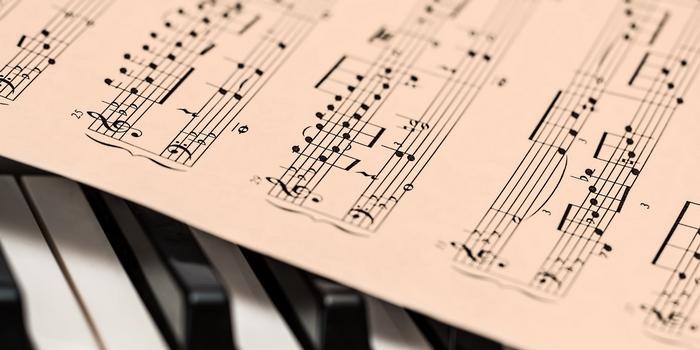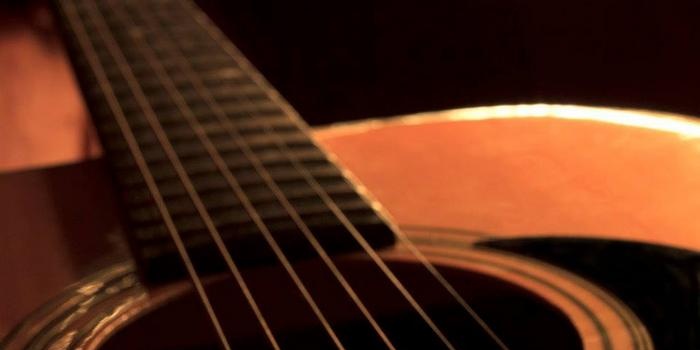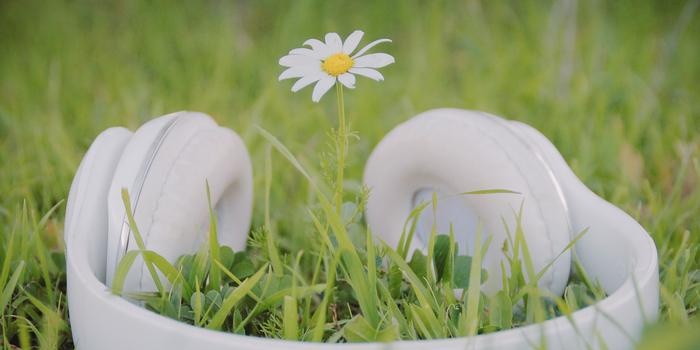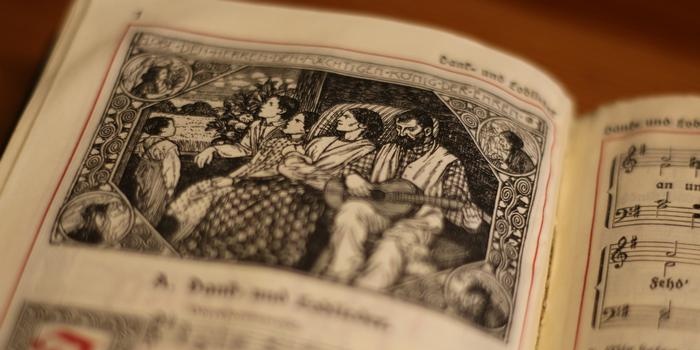Music comforts and inspires |
|
He tells a lot of songs about the past youth. The older ones among you may remember:
The popularity of this song was also promoted by the sentimental melody corresponding to the romantic era of its origin. Today there is no time to grieve over the past youth. You can't help it, nothing can be changed. But a person, singing such a song, will feel relief. Sing a song - it gets easier! Play some musical instrument - it will become more fun. Write a poem, music, create something beautiful, useful, pour out your grief, your feelings in something beautiful, useful to all people. In this way, you will help others who are in the same position as you. The best people have immortalized their grief and sorrow in works of world significance: for example, Smetana - in music, in literature - Nemtsova, Zegers and many others.
At our age, we do not sing so often, do not compose songs, and very few of us play the piano or any other instrument. Does this mean that we no longer experience pleasure. listening to music? Of course not. The pleasure of music is available to everyone - it is powerful and inspiring. Listen to music regularly. Someone might argue that not everyone knows how to listen to music. It is possible that you do not understand, do not understand classical music. The so-called "fashionable" music doesn't tell you anything. Some do not like jazz, some of you, for example, do not like soloists, and immediately turn off the radio as soon as you hear the singer's aria. Some of you do not want to admit that most of all they love brass music, in which you can hum familiar folk melodies. So, interest in music can be different. But everyone loves to listen to music. Some people say that music doesn't give them anything, that they don't understand it. But there are very few such people. Probably in childhood they were not instilled in a love of music, such people sometimes willingly listen to light music. But I have never in my life met a person who absolutely did not understand music. The addiction to brass bands, which amateurs of symphony orchestras does not recognize, is also understandable. Brass music popularizes folk songs that embody everything that life brings: love, joy, sorrow. Moreover, wind instruments lift your spirits. It is true that such optimism is light, shallow, but who of us does not sometimes need such optimism? There are times in life when a person cannot listen to a symphony, sonnet or opera. Such music penetrates too deeply into the mind, affects feelings that have not yet been recovered. I have met women who, during menopause, could not listen to serious music, it made them cry, shook them to the core.I have heard women who used to love and understand classical music, how they hum primitive songs to the brass music rushing from the radio. And probably they found in this some kind of consolation, which they could not get from serious music, in which they did not have the ease and comfort they needed at that time. Consequently, the love for wind music is justified for some people at a certain period of their life. The healing effects of music
Music can and does bring great joy at every age - and especially in the second half of life. For someone who experiences this feeling, life becomes richer, happier than that of a person who does not like music. Music is near us; you probably have a radio or broadcast, and you listen to music when you are relaxing; you probably listen to radio or watch a TV program, in a word, you hear music all the time; we call this the "phonetic backstage" in which we are as artists on stage. Does this kind of music matter to you? Hardly. You probably pay little attention to it, perceive it as ordinary noise on the street. Music has the best impact when you immerse yourself in it.
It is necessary to learn how to completely surrender to listening to music. Some people do not know how to listen to music, to abandon daytime worries. They do not know how to clear their thoughts of insignificant, tedious little things, such as what to cook for dinner, what to buy, etc. Try to get these thoughts out of your head. And yet, when listening to orchestral music, we can never focus on it so much that our thoughts are not scattered. But don't be afraid of that. This does not mean that you underestimate the music or commit sacrilege, and this does not in the least contradict the previous paragraph. If we can throw all the little things out of our heads, we can and should direct our thoughts to something more sublime: to reflect on life in general, on our plans, on the meaning of working life and the rise of the welfare of mankind. Do not be afraid of these "loud" words, which may sound like pompous phrases and do not say anything to you personally. Your thoughts may turn to your behavior, and suddenly you realize how imperfect it is. It will suddenly become clear to you what needs to be done to improve relations with people in the service. Gradually, it will become clear to you how to solve this or that issue in your work. And sometimes a simpler, uncomplicated solution to problems will unwittingly ripen in your head. Music with its rhythm helps to concentrate thoughts and speeds up the process of thinking - this is the undeniable influence of music, which you especially need now. Music imposes nothing. She tells you where to turn with your heavy thoughts, your grief, your dreams, where you can find peace. It inspires the spiritually discouraged, suggests a way out of a seemingly hopeless situation, inspires creativity, encourages new actions. But I repeat, for this you need to completely immerse yourself in the music.If you are listening to it at home, do not think about how to receive guests, or if you are at a concert, do not think whether a new dress suits you. Let go of everything everyday, unnecessary and, having gone entirely into music, you will find yourself in a special atmosphere, where a special mood is also created. If these feelings are shared by someone close to you, sitting next to you, then undoubtedly these feelings will be even deeper. And suddenly you feel that you are not listening passively.
The ability to experience music, connecting your ideas with it, is a wonderful property that, as I said, inspires further creative work. A person needs more inspiration than comfort and comfort. He needs comfort and tranquility only for a certain period, depending on the state of his health. What kind of music you "prescribe" - the doctor will decide, taking into account the state of your nervous system. But you know yourself better and choose the music for yourself, which at certain moments is more beneficial for you. It is possible that you are in a state where peace is the first thing you need. And in this case, music will help you. She will give you the opportunity to lose yourself in dreams. Try listening to Beethoven's Spring Sonata. This music exudes spring, youth, which is especially valuable when old age is approaching! But don't give in too much to dreams and memories. They can distract from real life, in which we need strength and courage. However, sometimes, when you feel the need to dream, to relax, try to perceive the beauty of music as much as possible. Dreaming, as a rest, is not dangerous, in this case it helps to understand life, and does not tear one away from it. Music is a source of strength
You need to understand humor. But a person is not always inclined to perceive humor, and this is understandable, and he is rather satisfied with serious music. Everyone has a favorite piece that cheers them up. But interests change over time. In their youth they like folk songs more, then later - Beethoven; there are people who prefer the music of Caesar Frank, later the strict and severe music of Bach begins to inspire, the choice is infinitely varied, and the music is boundless and immense. Human life is a struggle. It is not surprising that man-made music is full of life's struggles and expresses the composer's deepest experiences. The man of the past century and the man of today find their ideals in a piece of music. Make time for musicPerhaps it also happens to you that you do not know what to do first? A lot of work and no time for fun. Life is full of big and small worries. Little things occupy our thoughts, we pay attention to them and forget to think more deeply about the meaning of what we are striving for, what we are striving for. We do not find time to stop and reflect on either the past life or the future. It is at such a moment that you try to choose the time for the music. Dedicate one evening to a good concert. It is possible that you live in a wilderness where concerts are rare. In this case, you can go to the city for a concert or borrow a gramophone record, listen to a radio program, but most importantly, by all means find time for music. It is inappropriate to listen to music while running, ironing, sewing or reading. Do not be confused if you do not always enjoy the concert, and return home bewildered if the concert seemed boring to you. You need to understand everything. At one time, the audience did not understand Smetana's "Sold Bride".It would be necessary to urge cultural organizations to organize lectures by composers or music critics who would explain musical works to us and bring them closer to us. Music does not only bring joy, strength and inspiration. We must find the strength to love and sadness. After all, sadness is also an integral part of life and it can enrich and inspire creativity. And sadness has its own beauty, which is not always painful, but only sad. It's not scary. If we do not allow sadness to go beyond certain limits, it can enrich our life. Of course, you are not so naive and calculating that when you go to a concert, expect that it will help you solve a difficult situation in your family, or that listening to music will immediately be able to do difficult work for which you already felt too old. Music generously enriches only when we perceive it with all our hearts. The gift obliges
Remember how pleased you were when your mother sang folk songs to you and your younger brothers and sisters. You are still overwhelmed by excitement when you hear these songs. Their melodies awaken in you the memories of youth, joyful work, inspiration; the work you know once fully and passionately expressed your state of mind and that is why you love it so much. J. Dugamel in his book "Music of the Comforter" writes how he was reassured by the thought that his children loved the same music that gave him so much happiness. Music will comfort them, inspire and give strength when they have lost their parents! Teach children to understand music; you will leave them the best legacy, which will remain for them forever and they will associate music with the memory of you all their lives. Enjoy your musicWhen music is played, we have faith in life. And we again believe in the victory of truth, in beauty and joy. Music gives new self-confidence ... You no longer believed yourself, skeptically judged and condemned yourself and others. And now you feel a bright upsurge, your life is again filled with meaning and acquires a purpose. You feel wonderful experiences with your whole being, and you can no longer count yourself among dissatisfied people. You have a new energy for work and life. There is no need and no need to despair. Music - a comforter, as Dugamel called it, has enriched your senses and strengthened you. Klimova-Fugnerova M.
|
| Day and night - day away |
|---|
New recipes
 A country girl, disappointed in her first love, expresses her grief in a song. This is how a wonderful folk song arises. Not every woman knows how to create songs, but everyone can sing, and singing fills the soul with joy.
A country girl, disappointed in her first love, expresses her grief in a song. This is how a wonderful folk song arises. Not every woman knows how to create songs, but everyone can sing, and singing fills the soul with joy. People who know how to inspire others with their creativity have a great advantage over those who are unable to do so. A person who can sing songs has a big advantage over someone who does not sing and does not know songs. The one who sings can relieve his grief and please those who listen to him. In Dvořák's opera Jacobin, the returning exiles sing:
People who know how to inspire others with their creativity have a great advantage over those who are unable to do so. A person who can sing songs has a big advantage over someone who does not sing and does not know songs. The one who sings can relieve his grief and please those who listen to him. In Dvořák's opera Jacobin, the returning exiles sing: Since time immemorial, people have believed that music has a beneficial effect on a person. The harp was used to heal King Saul from melancholy 3000 years ago. Jan Sebastian Bach noted that it was the duty of the city trumpeter to calm the mentally ill. Homer described how the epidemic in Troy was suppressed with music. In the last century, the writer Georges Sand reported in a letter to the composer Meyerbeer that she was being treated for depression by music. Academician Irasek found that, for example, the second part of Smetana's grand piano trio soothes excruciating headaches in trigeminal neuralgia. He further writes that major music raises blood pressure, while minor music, on the contrary, lowers it.
Since time immemorial, people have believed that music has a beneficial effect on a person. The harp was used to heal King Saul from melancholy 3000 years ago. Jan Sebastian Bach noted that it was the duty of the city trumpeter to calm the mentally ill. Homer described how the epidemic in Troy was suppressed with music. In the last century, the writer Georges Sand reported in a letter to the composer Meyerbeer that she was being treated for depression by music. Academician Irasek found that, for example, the second part of Smetana's grand piano trio soothes excruciating headaches in trigeminal neuralgia. He further writes that major music raises blood pressure, while minor music, on the contrary, lowers it. And with a heavy load, you need to find time for music. This is part of the hygiene of thought, it distracts you in difficult moments, in moments of heavy turmoil and brightens your life.
And with a heavy load, you need to find time for music. This is part of the hygiene of thought, it distracts you in difficult moments, in moments of heavy turmoil and brightens your life. Therefore, music is exciting. It regulates and speeds up the train of thought. It leads to new thoughts that help to solve any issue, contributes to the emergence of an optimistic outlook on things, evokes a variety of ideas.
Therefore, music is exciting. It regulates and speeds up the train of thought. It leads to new thoughts that help to solve any issue, contributes to the emergence of an optimistic outlook on things, evokes a variety of ideas. Music is a great support and support for us in life! Listen to the bitch march "Into a New Life." You will immediately have the strength and ability to overcome obstacles and grief.
Music is a great support and support for us in life! Listen to the bitch march "Into a New Life." You will immediately have the strength and ability to overcome obstacles and grief. If we find so much valuable joy, consolation and inspiration in music, then we must pass on our experience to the younger generation.
If we find so much valuable joy, consolation and inspiration in music, then we must pass on our experience to the younger generation.




